#language learning tips
Text
Spanish Media/Input Recommendations?
Can you guys comment me some good media/input recommendations for someone learning Mexican/Spain Spanish? I' talking about any and all that you guys find interesting, whether you learned Spanish on your own or it's your native language!
Books
Podcasts
Tv Shows
Movies
Youtube channels
Songs/Musical Artists
Favorite Spanish teachers/tutors on Italki
Literally anything!
Thank you guys <3
#spanish studyblr#spanish langblr#spanish learning#spanish language#spanish#langblr#langblog#language tips#language learning#foreign languages#languages#language studyblr#language study#language goals#learn spanish#italki#spanish podcast#spanish books#university student#college student#español#mexican spanish#student life#student#college studyblr#college studyspo#language resources#language blog#languageblr#language learning tips
92 notes
·
View notes
Text
Learning through immersion
(Specifically Spanish, for intermediate-advanced learners. Most of this can be used for any language though)
Consume native content without looking up anything. Just enjoy it. (Something written, or something which has a transcript/subtitles)
Now consume it a second time
Write down any interesting sentences. (Ideally with pen and paper, for it to stick)
Anything that has something that looks like a word you know, but is in a tense you’re not sure, just a new use of a tense, some interesting expression or vocab…
Go onto SpanishDict and type in those interesting conjunctions, figure out what tense they’re in
Learn that new tense! Either through SpanishDict (they have lessons for pretty much everything) or just google lessons online. This can be as in depth as you like, or you can just google a quick explanation
Create new vocab list of new words and quickly run through it
Re-consume native content after going through all your sentences with a new enlightened mind
On this run you can also read aloud (or mirror, if you have audio) the interesting sentences you wrote down. With feeling, please.
Then write something in your own words, using new grammar and vocab you’ve studied. Or speak aloud, and record yourself. You should try to write other sentences using a similar structure as whatever new interesting tense use you’ve found. If it suits you, get a native speaker to check your sentences, using Busuu, or HiNative, or something similar.
This is just one way that I’ve been enjoying recently. To be honest, you can cut out pretty much any of these steps depending on what suits you, how much time you have, etc.
The important thing is that you’re paying close attention to your content, and you absolutely need to write your own sentences afterwards.
Unless you genuinely have no interest in communicating with native speakers — maybe you just want to watch tv or read in your target language and that’s fine — but if you do want to be able to communicate, you’re going to need to practice. You should also be practicing speaking aloud. If you have nobody to talk to, talk to yourself.
This strategy is really useful for when you’ve self-studied the basics of a language and you don’t know what grammar you need to study next. Just let
#i hope this is coherent#btw I skip half these steps all the time#I do think it’s important to stumble through before looking things up tho#but you can do this by just…reading a paragraph in its entirity before googling whatever vocab and grammar#also this process doesn’t need to happen in one sitting#langblr#language#language learning#spanish#spanish langblr#learn spanish#linguistics#language tips#language resources#languages#spanish language#learning languages#language learning tips#how to learn Spanish#quinn posts#100
470 notes
·
View notes
Text
Langblrs who’ve self-studied one or more languages to at least the C1 level without leaving your country (or state/province)—what were the best methods or self-immersion tips you used to push from B2 to C1 in speaking and writing?
#help my speaking is forever my stuck fourth pillar#langblr#studyblr#language learning#language learning tips#cefr#immersion
76 notes
·
View notes
Text
How I read and enjoy books in my target language
Please note that I write about what works for me and share advice based on my own experiences. If you have a different opinion or if you use other methods, that's absolutely fine. Do whatever works for you.
Since some people asked me how I read books in my target languages, I would like to describe my way of reading in this post. I focus on reading for some time now and I'm very happy with my progress so far. This doesn't mean that I won't change a few things in the future (I'm constantly gaining experience and changing my learning style accordingly).
1. Choosing a book
Before I start reading, I have to choose an appropriate book, obviously. After trial and error I realized how important this step is. My ideal book is:
not too easy (I won't learn much)
not too difficult (if I can't follow at least the rough story I won't enjoy it)
interesting (motivation to read it)
I try to choose a book that is slightly above my level so that I can follow the story without looking up too many words but also learn new words. I don't need to understand everything, but I don't want to feel lost either. Balance is important.
2. Trying the first chapter
After choosing a book that seems to be appropriate, I try to read the first chapter (and sometimes the first two chapters, if they are short). I pay attention to things like:
Can I follow the story?
Is the story interesting?
Do I like the writing style?
If I can answer (most) questions like these with "yes", I continue reading the book.
Do I only understand single words or sentences here and there? Do I have no clue what happens? Then I put the book aside for now and choose an easier one. There's no shame in admitting that this book is too difficult at the moment. Deciding what I don't read is just as important as deciding what I read.
3. Reading
If the level of difficulty is okay, I start reading the book. In my experience, the first few chapters are always the hardest. I need time to get used to the writing style, the used vocabulary and the story.
In the case of the japanese version of Harry Potter, the beginning was difficult because of the writing style. But after two chapters, I began to enjoy the story and so I continued. That's why I always try to read at least the first chapter. A book that seems difficult in the beginning can be very enjoyable once I've read enough pages.
When I come across an interesting word or a sentence I like, I highlight it. I try to not highlight too much stuff, though. Two, maybe three words per page is usually my maximum. Enjoying the story is my number one priority. I can read several pages without highlighting anything, even though there are words I don't know. As long as I don't feel the strong urge to look up a word, I just continue reading.
In many cases I can understand words from context and learn them over time just by seeing them again and again. That's why I don't look up words immediately. I wait to see if they come up more often.
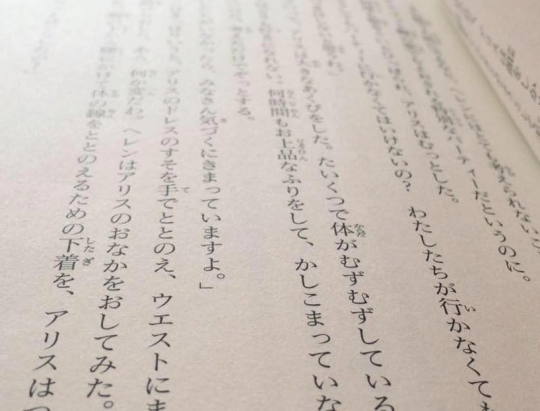
After I finished one chapter, I look up all highlighted words and read the passages that contain these words a second time. This way, I can connect the meaning with the full context. I don't try to memorize the word; I just try to understand it in this particular context before I continue.
Most of the time, I learn words unconsciously. If the book is easy enough, it's not so difficult to guess the meaning of certain words. While reading, I don't focus so much on words I don't know. I just focus on following the story. I may not always understand every detail, but as long as I can follow and enjoy the story, everything is fine. I learn so much by engaging with the language in a meaningful way and enjoying the content. Sometimes, I even forget that I am reading a book in a foreign language!
I have to add, that I'm already familiar with basic sentence patterns and that I have experience with reading books in my target languages. I finished the book "Remembering the Kanji" which makes it easier to guess the meaning of words. Knowing lots of kanji is a great advantage.
I have still a long way to go, of course, but this natural way of learning vocabulary may not work well at very early stages because you need a foundation first. After you are familiar with the dialogues and example sentences in your textbook, graded readers are a good choice in my opinion. Graded readers can make the transition from textbooks to easy books aimed at (young) native speakers easier.
Tip: One thing that helped me is to take a card, write down words I looked up and put this card into the book. When I read it a second time, I don't need to look them up again. Reading texts more than once can help to get more familiar with new words. Plus, writing helps me to remember words better. Reviewing them in their original context is much more enjoyable to me than reviewing them with flashcards. In the picture below you can see how my cards look like:
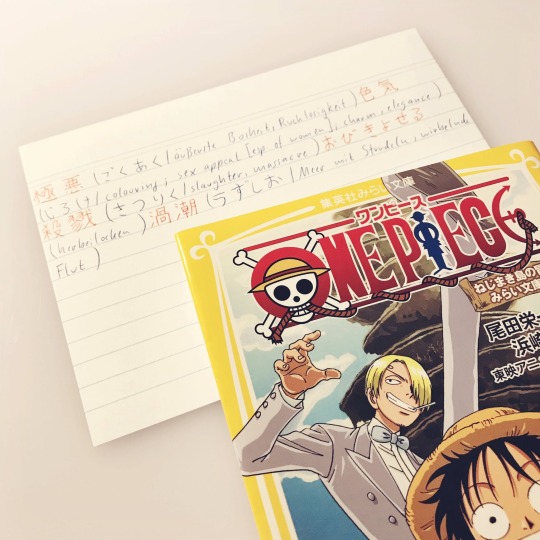
4. Enjoy!
I made enjoying books my number one priority. This is what helped me to make much more progress than before. All I need is enough reading material at the right level and a dictionary. As soon as I get absorbed in a book, I don't think about learning a language. I just want to enjoy the story. The more experience I gain, the better I become at understanding the language as a result. There's no need to force it or to hurry.
What I like about just enjoying a book and learning words naturally is that it's so simple. I don't necessarily need my computer, a certain software, add-ons, ... All I need is something I can read. After reading a chapter, I only look up a few words as I described above and that's it. Then, I often feel so motivated that I want to read more. I read much more than before because I enjoy it so much.
515 notes
·
View notes
Text
Has your brain ever gone “oh yep, I understand that” after reading or hearing a sentence in your target language, only for you to realise several sentences later that you have no idea what the content is talking about?
I don’t know if this is common or just my experience, but when I was studying japanese during my intermediate plateau, I noticed it was very easy for me to trick myself into thinking I understood a sentence/paragraph/spoken phrase and moving onto the next one, when I did not in fact understand it.
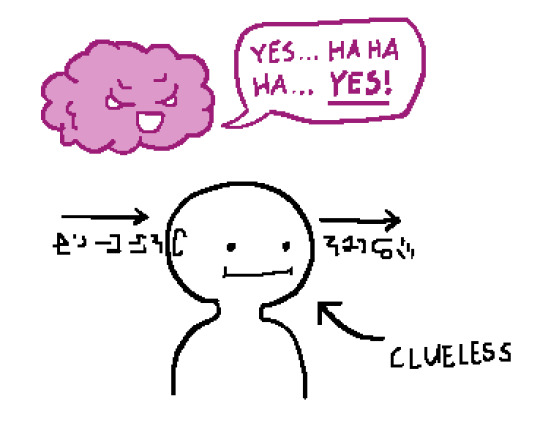
I think a part of your brain wants to pretend learning a language is easier than it really is. But it’s not easy. Learning a language requires constant active listening, which is really hard! You can’t just switch your brain off and watch content like you can in your native language. You need to be listening or reading with purpose. Earlier in my language journey, while watching or reading something, I paused the video or stopped reading after every sentence and made sure I understood each sentence as it was spoken, but once I hit that midpoint I started overestimating myself and the pauses became less frequent.
Another part of it is that it was hard for me to admit to myself that I didn’t understand. I felt like I wasn’t improving as fast as I wanted, and for me to not be able to understand a sentence even when I recognised most of the words/grammar in it was a hard truth to face. But every time I did face it, and chucked the sentence into DeepL, or looked up the grammar, or checked the meaning of a word that seemed out of place, I learned something that leveled me up in a meaningful way. It’s these moments that yield the most impactful growth imo.

I guess this is advice for anyone who’s trying to self-immerse and has experienced what I’m describing: You gotta fight your lizard brain. Your lizard brain wants shit to be easy, but if you’re serious about reaching fluency, you can’t let it win. You need to recognise when you didn’t understand something and admit it to yourself, because that’s when you do your best learning.
158 notes
·
View notes
Text
I had a request to talk about my language diary, so here we go :)
I’ve only recently started it this semester. I currently study French and I JUST started Hindi as well!! language diaries or notebooks are just a ways to improve your spelling, grammer, and conversations skills. Some days I’ll write my French work in the form of a diary entry; others, as one sided conversations with imaginary people.
I try to write very quickly, and THEN go back and correct grammer/spelling/etc.
these are some (uncorrected!) French examples:
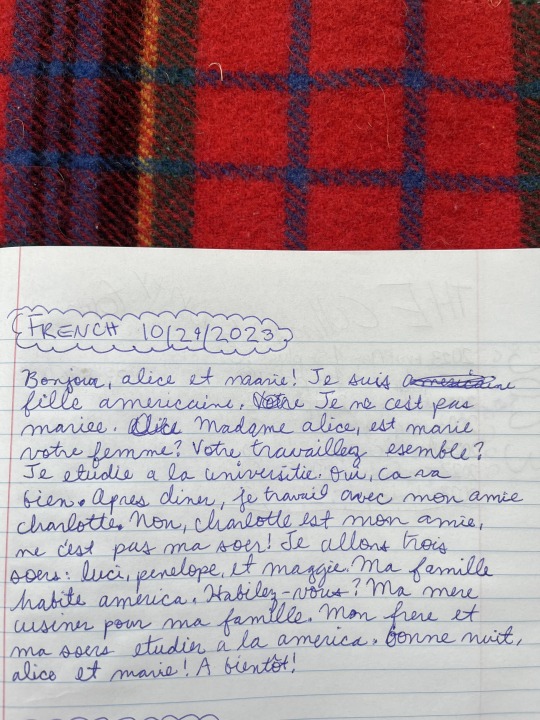

Currently, I’m practicing writing the Hindi alphabet, so I practice that here as well!
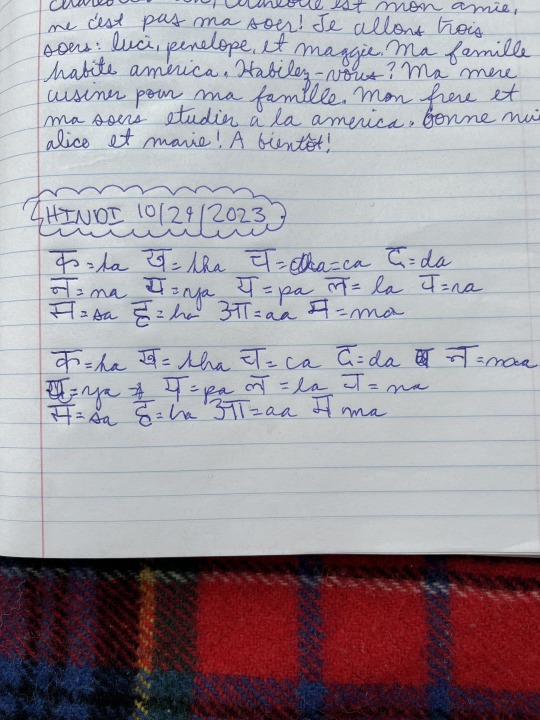
Overall, it’s a rlly valuable tool I’d recommend to anyone trying to learn a language 💜
56 notes
·
View notes
Text
underrated language learning tip: listen to asmr in your target language! (if that sorta thing doesn't give you the creeps) I find asmr is usually very easy to understand, with lots of repetition, and lots of over explaining. (plus it's super relaxing if studying is stressing you out!)
#language learning#studyblr#aspiring polyglot#learning italian#language learning diary#asmr#language learning tips
33 notes
·
View notes
Note
Hej! Hur mår du? I'm trying to learn swedish for my partner, would you happen to have any tips? Babbel is very useful, but I loved your blog so much I scrolled all the way to the bottom last night so I wanted to ask you. Tack (so? Sa?) Tack sa mycke!
Hej, tack så jättemycket för dina snälla ord! :) I’m really glad if you liked my blog.
I’m not sure I can give much useful advice, but I’ll do my best to describe what worked for me. So, here’s how I’ve been teaching myself Swedish:
I used several grammar reference books at the same time, to get a fuller overview of the language + get to do as many exercises as possible haha. The ones I used were the Routledge essential grammar and comprehensive grammar (as well as one in my own native language but well, that probably won’t be useful to you…). They’re all available as pdfs online. I would pick a grammar topic, scan all my books and do an additional internet search if necessary to compile and condense the information in my notes, then do some exercises. Initially I tried to do one or more topics every day but then found it more productive to alternate “grammar days” with “vocabulary days”
Speaking of which, I approached vocab in a similar way in the beginning: pick a topic, like colours or numerals or body parts, make a list and cram it. For adjectives, I found it an efficient strategy to learn them in pairs of antonyms
I kept a diary in Swedish for some time, which was helpful because that way I learnt and used specific vocabulary relevant to me and my life
I started reading, watching and listening stuff in Swedish quite early on, which I highly recommend to get comfortable with the language. To translate new words, I tried to refer to a monolingual Swedish dictionary as much as possible. Note: I could post a list of particular podcasts/YouTube channels/news resources etc that I liked if you guys want me too! But obviously it largely boils down to what you’re interested in.
Related to the previous point, I follow both teachers of Swedish and Swedish natives on social media to increase immersion
Good old Duolingo was rather nice, especially early on, to get the basic vocab and some grammar down
Quizlet and thematic Tumblr vocab lists proved rather useful too, especially when I wasn’t too lazy to review them
+ Some cool resources I use for Swedish as well as other languages:
Omniglot (a great place to start with any language: basic info + resources)
Glosbe (Reverso context but make it better)
obviously, Wiktionary (useful to look up declensions)
Last but not least, I encourage my followers to add their tips too!
Jag hoppas att det hjälper dig :)
33 notes
·
View notes
Text
What's wrong with you, Duo? Like, why is this even a thing?

#duolingo#duo#duolingo is weird#langblr#learn german#language resources#language learning#german#learning german#german worksheets#duolingo german#german tips#german resources#langblr resources#language learning tips#language#third language#polyglot#on my way to be a polyglot#practice#studyblr#study#study blog#study hard#langblr tips#studyspo#practise#studyonline#studying#germany
201 notes
·
View notes
Text
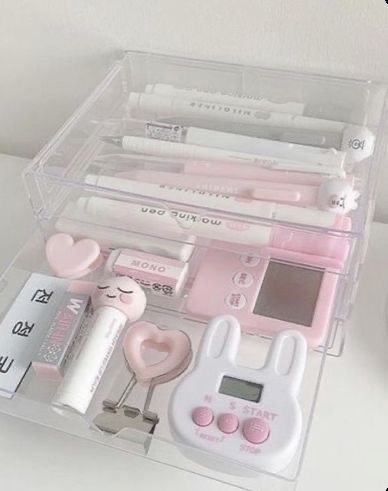
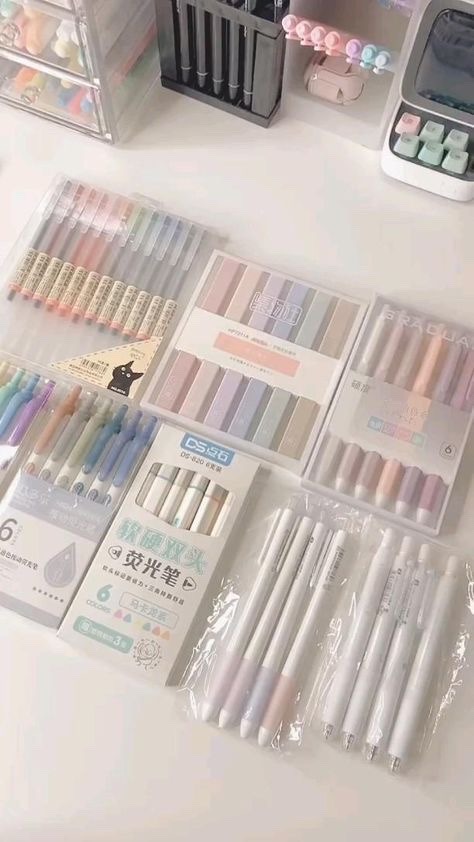
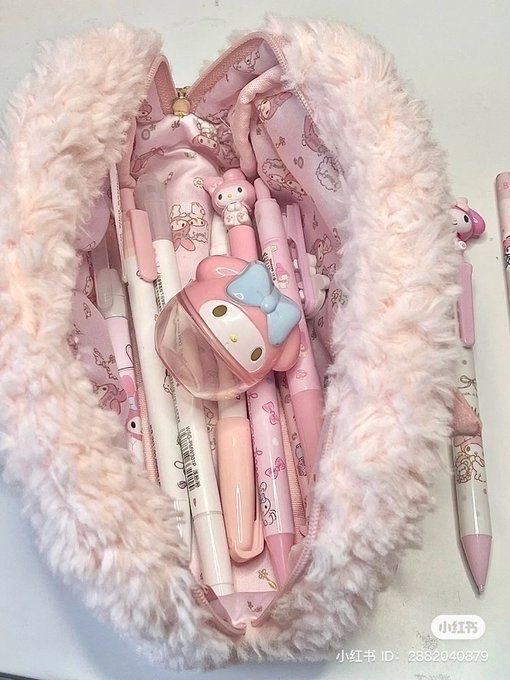
Current Japanese Study Routine + Resources 🎀
As you all may know, I am currently self studying Japanese and Spanish, though I am putting Spanish on the back burner for now so I can focus more on Japanese as that is where my passion lies at the moment. Lucky for me, there is a Japanese language and culture club on my university campus that I am (hopefully) going to join next week or the week after, given how busy my schedule ends up being. I thought I’d make a little post about my current routine that I use to study and what resources I am currently using and am planning on purchasing to use in order to build my proficiency in this beautiful language!
Current Resources 🩷
Apps - I am currently playing around with several apps to see which ones work for me, so here is all the apps I currently have downloaded to my iPad/phone
Duolingo - this has been a go to for all language I’ve ever tried to learn, it’s useful for me as a basic introduction to vocabulary, sentence structure, some grammar, and I just like how it involves typing, speaking, listening, and reading.
Drops - this one is just a fun little 5 minutes gamified way to learn vocabulary for me, it’s definitely a go to on my lazier language learning days
Bunpo - I like this for learning the kana but I didn’t realize it costs money to use fully so I am debating purchasing a subscription to the paid version
Write Japanese - this one I’m using to learn the correct stroke order for the kana and I like it for the most part
Renshuu - I just signed in to use this one last night and it looks interesting. I’ve seen it recommended by several blogs and even when google searching language learning and watching YouTube videos so I’m excited to try it out!
NHK for School - I saw someone recommend this on their blog and I remember using the website version in the past so I know this will be helpful when it comes to reading
Jisho - this is a dictionary app that I’ve seen recommended on so many platforms and I’m always open to a good dictionary!
Japanese - this one was recommended on a blog post and it allows you to add vocabulary and interesting phrases so I thought it’d be useful once I start on learning sentence structure and grammar
Italki - this one is the one I’m most excited to use. It connects you to people who speak and teach your target language for a set timed lesson, and it does cost money but you pay by lesson, not on a subscription basis. So if you do one lesson the first week and then another lesson in three weeks or something, you only pay for those two lessons. I’m really looking forward to trying this one out in the future once I get more comfortable with speaking.
Anki - a flash card app I am using to currently learn hiragana and will soon use for katakana and eventually kanji and phrases. I was gonna use Quizlet but I ended up liking this one better for my current needs.
LingoDeer, Memrise, Babbel, HiNative, HelloTalk, Hey Japan, Busuu, Kanji, Kana, Sensei - apps that I have and have not tried yet. I really like the ones I’ve already tried so I’m not sure if I’m going to use these ones soon but if I get bored of current apps than I at least have alternatives to turn to to continue learning
Textbooks/Workbooks/Materials - I currently own two workbooks but will include the resource I am planning on buying, as well as any stationery material I am also using!
Japanese for Busy People I - This was the workbook we had for the Japanese class I took at my university while in high school. My dad ended up buying it for me if I promised not to take Japanese classes once I went to college. (My parents don’t believe it is useful to know and they are helping pay for my education so I didn’t have a choice.) I haven’t started reusing it yet but once I am comfortable with the kana then I will resume using it.
Let’s Learn Katakana - this is a katakana writing book my older brother bought for me (he is supportive of everything I have an interest in even if he doesn’t understand it himself) and it is really useful for learning and practicing writing katakana. However I am still focusing on relearning hiragana so I will return to this workbook after I solidify my hiragana knowledge.
Genki I and Genki II textbook/workbook + answer key bundle - I am planning to buy this off of Amazon as I have heard from most people who are learning Japanese on their own that this set is really useful for self studying so of course I am going to invest in it once I get paid next week.
I am also looking for a hiragana, katakana, and kanji writing workbook to practice those skills.
Free Online Resources -
YouTube!
Anime!
Music
Manga
Anything free I can find online when google searching resources
Stationary Supplies -
Kokuyo Campus Smart Ring Binder in pink
Tombow Fudenosuke Brush Pens in black
Index cards
Pilot g-2 fashion pens
Zebra mild liner highlighter/markers
Papermate Mechanical Pencils
Mini notebook to carry around for vocabulary
My iPad + Apple Pencil + Goodnotes 5
My Chromebook
A lot of resources but I am trying to stick with this for the long term. A few years ago, I self studied Japanese everyday for about 2 years and gained a good understanding but fell off from studying Japanese when I went to university.
My Current Study Routine* 🎀
*when I have more than 30 minutes to study, if I only have 30 minutes or less I just mess around on my language apps
I currently do not use any workbooks or textbooks as I am trying to re familiarize myself with the language. Here’s my current study routine!
Practice Anki flashcards 3 times or until I get 85-90% correct
Practice hiragana writing in Write Japanese app (~10min)
Duolingo lessons for 10 minutes
1 Japanese language Drops lesson
Use Renshuu until I get bored (~10-15min)
Watch an episode of anime as a reward (Japanese audio with English subtitles)
I will switch this up to a more structured way of studying once I start using my textbooks and workbooks, but for now this relaxed style of learning is working for me time wise and attention wise (ADHD brain right here).
I also listen to Japanese music throughout the day and try to recall hiragana characters correctly in my head when I have the time. I also sneak in some practice when at work on my apps and whatnot. I mentioned in my last daily check in some of my favorite Japanese artists, and I also love Japanese versions of K-pop songs too! I’m currently watching Bungou Stray Dogs on crunchyroll right now, and I’m open to any recommendations for what to watch next!
If anyone has any language learning tips or resources they’d want to share, feel free to comment! It would be greatly appreciated!
Til next time my lovelies 🩷🤍
#pink pilates girl#pink pilates princess#self care#self development#self love#wonyoungism#health & fitness#mental health#it girl#physical health#japanese language learning tips#language learning tip#language resources#language learning tips#language learning#langblr#studyspo#college studyblr#vanilla girl#green juice girl#coquettecore#college study tips#coquette girl#study tips#studyblr#studyinspo#foreign languages#language tips#pink academia#pink blog
196 notes
·
View notes
Text
Polylogger is a very simple but effective app. Does exactly what it’s supposed to do, with no annoying extra nonsense or adverts.
I’d recommend it, as personally I find it motivating to be able to record how much I study.
#langblr#language#language learning#language learning apps#language learning resources#language learning tips
32 notes
·
View notes
Text
Hungarian sayings you might wanna use
"A hazug embert hamarabb utolérik mint a sánta kutyát" - "A lying person gets caught before a lame/crippled dog"
"lakat van a száján" - "They have a lock on their mouth" (keeping a secret)
"Egy bolond százat csinál" - "One fool makes a hundred" (if someone does something stupid, people will follow it)
"Egy fecske nem csinál nyarat" - "One swallow (bird) doesn't make summer" (you can't get far without help/one thing doesn't immediately lead to another)
"Egyik kutya másik eb" - "One is a dog, another is a canine" (although different names, they're the same)
"Nagy az állatkertje Istennek, de alacsony a kerítés" - "God's zoo is big, but the fence is short" (talking about how there's a lot of idiots)
"Nem esik messze az alma a fájától" - "The apple doesn't fall far from the tree" (referring to someone that's just like their parents, usually in a bad way)
"Bort iszik, vizet prédikál" - "He drinks wine, but he preaches water" (Referring to someone that always talks about how good they're, but they don't even do the things they say)
24 notes
·
View notes
Text
Japanese Listening Practice - My Favorites
Over time, I've found many podcasts and YouTube channels aimed at Japanese learners but these two are my personal favorites at the moment:
JAPANESE WITH SHUN
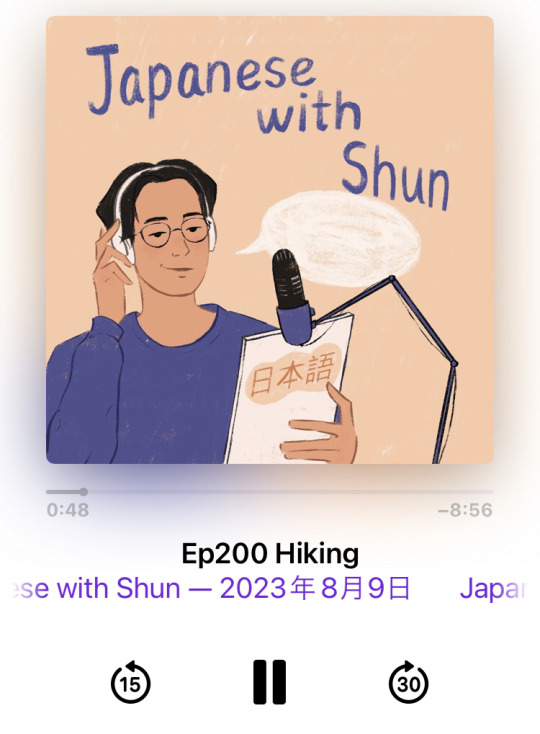
This is one of my favorite podcasts! He talks in a calm voice and not too fast, which is very pleasant to listen to.
In this podcast, he talks about many different topics: daily routine, familiy, work, life in Japan, but also about his trips and other personal experiences, dreams and thoughts. Things you may also want to talk about when you talk to native speakers.
This podcast is aimed at Japanese beginners so he talks in quite simple, easy to understand Japanese. I think it's best if you are already familiar with basic Japanese (Genki 1 and maybe 2, for example). Otherwise it's probably a bit too difficult for absolute beginners.
あかね的日本語教室
youtube
I love her travel videos! You see her in different interesting places in Japan and she explaines a lot: about sights, how to use different kinds of vending machines and much more. Plus, her videos have japanese subtitles, but you can also turn on subtitles in other languages if needed.
I think her explanations about such things are really helpful. If you are in Japan and encounter a problem or if you are not sure about something her videos can give you an idea how to talk about these things.
She also often talks to other people (in shops, for example). I think, videos like this are very helpful because you learn a lot about travel-related things and how to communicate in Japanese.
#langblr#languagelearning#japanese learning#languageblr#self study#learning japanese#language learning#study japanese#日本語勉強#listening practice#recommendation#video recommendation#podcast recommendation#language learning tips#Japanese beginners#Youtube
21 notes
·
View notes
Text
salut mes anges! today i thought i’d share some tips for learning french (or any language really)! please enjoy lovelies <3
⁎⁺˳✧༚ form a book club!
this is a great way to improve in all areas of language learning (reading, writing, speaking, listening) and make it fun and social! if you have a few friends also learning the same language as you, why not try to read a book in your target language every month? you can get together to discuss your favourite parts, what you did and didn’t like, and even write a review at the end! this works well both irl and virtually (discord would be a great platform for this <3)
⁎⁺˳✧༚ listen to music!
finding some good songs in your target lang can be really helpful! singing along in the car improves your pronunciation, you can note down new vocab as you encounter it, you could give translating the lyrics a go and learn new idioms/metaphors or you could just sit back and enjoy being immersed in the language you’re learning ! i found this one super fun and relatively low effort so maybe give it a chance :D
⁎⁺˳✧༚ speak!
this sounds basic af but i promise there’s actual insight here. speaking whenever possible means you apply all new grammar and vocab you’ve learnt to real life situations! you can chat to your friends, to your pets, record voice memos with shopping lists/notes/observations/diary entries, converse online, read passages of books aloud in your target lang, talk to siri in ur target lang, sing whilst you do mundane chores etc. speak every opportunity you get, because it really does improve your fluency!!
⁎⁺˳✧༚ change your phone settings!
when I first did this, it was definitely scary but ultimately really useful. it forces you to interact with the language daily, and even if you don’t understand everything at first, context and previous knowledge helps you to piece things together. also, your phone has a lot of high-frequency words that are insanely useful in everyday life!
⁎⁺˳✧༚ keep a diary!
this helps you improve fluency and express yourself better, highlights gaps in your vocab, means you learn all your most used words in your target language, helps you to learn how to apply grammar rules and form sentences that sound natural and gives you a record of all the progress you’ve made! you can look back at how far you’ve come which is honestly one of the most rewarding experiences :D
⁎⁺˳✧༚ don’t give up!!
when you’re a beginner, everything feels new and exciting and you feel super smart because you’re learning so many new words! however, as you improve, you’ll realise just how much you don’t know (“i can carry a conversation, sure, but what if i wanted to talk about something specific, like philosophy or biology? there’s just so much i still have to learn!”) don’t let this discourage you! it’s a sign you’re improving :) just try to interact with the language often and keep up the good work <3
i hope this was useful! sorry for the long post lmao T-T je t’aime!!
#cinnamon’s french posts#français#french#frenchblr#langblr#polygot#language learning#language learning tips#studyblr#apprendre le français
110 notes
·
View notes
Text
https://www.learnfrenchwithchanty.com/post/learn-language-watching-tv
Are you learning French or any other language through TV? Here is how to get the most out of it 👇
https://www.learnfrenchwithchanty.com/post/learn-language-watching-tv
#french langblr#learnfrench#french#learningfrench#studyfrench#languageblr#language learning#language lover#polyglots#learn a language#watching tv#language learning tips
12 notes
·
View notes
Text
so, I'm not really sure how many people this might help, but I just HAD to talk about this because it's amazing. there's this book called "Stories from Welsh History for Standard III" by Owen Morgan Edwards. not sure about apple books??? idk what iphone uses lol, but on google books, it's free (at least in canada). it's a great book in my opinion, with interesting, simple stories with the translation in English on the next page. it has some key vocabulary at the top of each story in case you get stuck. really good resource, hope it helps!
#welsh#language learning#studyblr#aspiring polyglot#learning welsh#cymraeg#language learning tips#language learning diary#language learning resources#running on two hours of sleep
29 notes
·
View notes